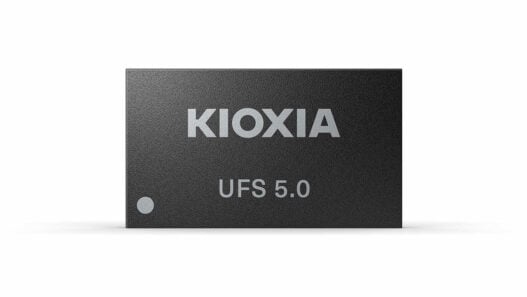Texas Instruments unveiled a new multistandard wireless base station System-on-Chip (SoC) delivering double the LTE performance and a 2x power/performance improvement over existing macro and compact base station SoC solutions developed in 40-nm process technology. Based on TI’s new TMS320C66x digital signal processor (DSP) generation, the TMS320TCI6618 utilizes a strategic design approach that accelerates the well-defined standard aspects of LTE. In addition, the programmable DSP cores allow customer differentiation in advanced techniques such as scheduling and multiple-input and multiple-output (MIMO) antenna processing.
This advanced SoC brings the unmatched performance and flexibility that enables Nokia Siemens Networks to extend our leadership position in commercial radio products, said Tommi Uitto, head of LTE business line, Nokia Siemens Networks. We have truly software-defined radio in the baseband as well as in the radio frequency (RF) parts. With our LTE-ready products shipping to over 200 operators worldwide, we value the innovation and high quality that Texas Instruments technology and our deep co-operation continue to deliver.
As wireless data rates increase with high-speed 3G and 4G services, the ability to efficiently handle the high numbers of bits flowing through base stations becomes critically important in SoC design. With the TCI6618, TI is introducing new hardware acceleration focused on this bit-rate processing which increases the SoC system performance and enables advanced receiver algorithms, achieving higher spectral efficiencies than competitive solutions. For the first time in an integrated base station SoC, TI’s innovative architecture enables iterative decoding techniques, such as turbo interference cancellation, which can yield up to 40 percent or more spectral efficiency over conventional decoding techniques. These techniques, coupled with the powerful MIMO processing capabilities of TI’s new fixed/floating point C66x DSP core, yield a SoC that delivers on the promise of 4G.
“TI is effectively breaking the constraints of Moore’s Law with their new base station SoC, by doubling performance in less than six months and not changing any process nodes to achieve it,” said Jagdish Rebello, Senior Director and Principal Analyst, IHS-iSuppli. “Wireless infrastructure developers stand to benefit from these advancements in performance, features and time to market, all suited for the demands of 4G networks.”
The TCI6618 complements TI’s recently announced TCI6616 wireless base station SoC. Both solutions are pin and software compatible, offering customers complete flexibility in designing multistandard base stations supporting all 2G, 3G and 4G standards. This flexibility simplifies operators’ migration to 4G and allows base station manufacturers to develop a wider portfolio of solutions at a lower cost, lower power, and in less time than with competing solutions.
Key features and benefits:
• Developed on TI’s KeyStone multicore architecture and powerful new C66x DSP cores, TCI6618 enables scalability and portability from macro to small cells while reducing product development expenses;
• Advanced C66x cores with integrated floating point capability provide full programmability and 5x performance improvement in critical algorithms such as MIMO and scheduling – both key areas of differentiation for customers;
• New multistandard Bit Rate Coprocessor (BCP) accelerates bit rate processing for LTE, WCDMA, TD-SCDMA and WiMAX, substantially increasing system capacity and performance with lowest latency;
• Scalable KeyStone architecture provides a non blocking 2 Tbps switch fabric, featuring high throughput system interconnect and zero copy multicore infrastructure;
• Industry leading power reduction technologies, including TI’s SmartReflex™ power management, memory retention and dynamic power management, deliver lowest power levels for base stations;
• High-performance 40-nm process technology ensures robust performance and unmatched value for base station developers;
• Balanced programmable CPU cores and configurable accelerators enable software defined radio with a simplified programming model.







